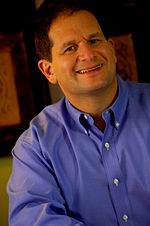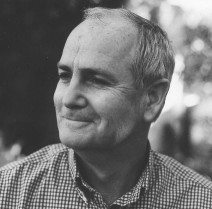[box]The following text is an excerpt from the recently released “What is the Vineyard?” booklet published by the Vineyard USA.[/box]

A Brief Snapshot
The first Vineyards were planted in 1975. By 1982, there were at least seven “Vineyards” in a loose-knit fellowship of churches. Kenn Gulliksen, a soft-spoken, unassuming leader with a passion to know and walk with God, started a church in Hollywood in 1974. In 1975, believing that God had instructed him to do so, he officially gave the name “Vineyard” to this association of churches and led them for about five years.
In the early 1980s, Kenn felt led to ask John Wimber to assume leadership for the growing movement. The official recognition of this transition took place in 1982: the emergence of what was to be called the “Association of Vineyard Churches.”
John Wimber
John Wimber’s influence profoundly shaped the theology and practice of Vineyard churches, from their earliest days until his death in November 1997. When John was conscripted by God, he was, in the words of Christianity Today, a “beer-guzzling, drugabusing pop musician, who was converted at the age of 29 while chain-smoking his way through a Quaker-led Bible study.”
 In John’s first decade as a Christian, he led hundreds of people to Christ. By 1970 he was leading 11 Bible studies that included more than 500 people. John became so fruitful as an evangelical pastor he was asked to lead the Charles E. Fuller Institute of Evangelism and Church Growth. He also later became an adjunct instructor at Fuller Theological Seminary, where his classes set attendance records. In 1977, John re-entered pastoral ministry to plant Calvary Chapel of Yorba Linda.
In John’s first decade as a Christian, he led hundreds of people to Christ. By 1970 he was leading 11 Bible studies that included more than 500 people. John became so fruitful as an evangelical pastor he was asked to lead the Charles E. Fuller Institute of Evangelism and Church Growth. He also later became an adjunct instructor at Fuller Theological Seminary, where his classes set attendance records. In 1977, John re-entered pastoral ministry to plant Calvary Chapel of Yorba Linda.
During this time, John’s conservative evangelical paradigm for understanding the ministry of the church began to grow. George Eldon Ladd’s theological writings on the kingdom of God convinced John intellectually that all the biblical gifts of the Holy Spirit should be active in the Church.
Encounters with Fuller missiologists Donald McGavaran and C. Peter Wagner, along with seasoned missionaries and international students, gave John credible evidence for combining evangelism with healing and prophecy. As he became more convinced of God’s desire to be active in the world through all the biblical gifts of the Spirit, John began to teach and train his church to imitate Jesus’ full-orbed kingdom ministry. He began to “do the stuff” of the Bible, about which he had formerly only read.
Early Experiences With The Holy Spirit
As John and his congregation, mostly made up of former Quakers, sought God in intimate worship, they experienced empowerment by the Holy Spirit, significant renewal in the gifts, and conversion growth. Since it soon became clear that the church’s emphasis on the experience of the Holy Spirit was not shared by some leaders in the Calvary Chapel movement, John’s church left Calvary Chapel in 1982 and joined the Association of Vineyard Churches.
A Network Of Churches Worldwide
Over time, the Vineyard movement has grown to be a network of over 1,500 churches worldwide. We seek to blend the best of the evangelical traditions with their focus on Christ-like character and regard for the Scriptures, with the best of the Pentecostal and Charismatic traditions of welcoming the empowering of the Holy Spirit for life, ministry, and acts of service.






